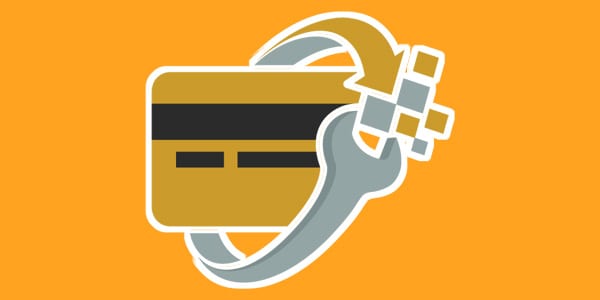How to Improve Your Score
Improving Your Score
One three-digit number can stand between you and getting approval for a variety of things ranging from renting an apartment to buying a new house boat. According to Equifax, a score under 580 is considered poor, while a score of 750 and up is excellent. If your number falls somewhere in the middle, you may have a fair or good rating. Different lenders set their own criteria for which scores they feel comfortable with, but if you need to improve in that area, follow these tips.
Getting a credit card is a great way to raise your credit score, if you use it regularly and make the payments on time. You can always use it for something you know will happen every month, like your water bill, and then pay off the balance just to get those good reports on your credit. If you’re starting to build credit from scratch, or have poor credit, consider a secured credit card. This is a card you put down a deposit on, and the company uses that deposit as collateral. You use the card to make purchases and then make payments every month like a standard credit card. If you immediately pay off the balance after making the purchase, you can reap the benefit of building credit without the disadvantage of paying high interest on it. Many times, these secured cards will refund your deposit and offer you another line of credit over time. The Discover IT secured card works with a $200 deposit. Mastercard and Capital One offer this card and the deposits start at $49.
Maybe you went to the hospital two years ago and forgot to pay the bill? Another way to improve your credit score is to comb through your credit report and pay off the things that may be negatively impacting it. The Federal Trade Commission recommends going here or calling 1-877-322-8228 to obtain a free copy of your report. You’ll have to verify your identity by answering some questions before you can get a copy. This is a great reminder for bills that may have gotten lost in the mail. You can also make sure no mistakes have been made that are adversely impacting your score. The people who report to these agencies are only human, and sometimes errors happen. This way, if your bank incorrectly reported a late payment on your loan, you can call and dispute it.
Lastly, if you have a low credit score, consider getting a cosigner for your rent or loan. As long as you pay on time, this will help the lender feel more confident about you while you build good credit. Your potential cosigner needs to be someone with a near excellent credit score and have enough income to cover the payment should you default. It needs to be someone who doesn’t mind filling out paperwork with personal financial information.
A credit score is a snapshot of your likeliness to honor loan agreements and payment arrangements. Whether you’re trying to improve your score, or build on it from scratch, there are ways to change the numbers in your favor.
7 Habits of People with an 800+ Credit Score
1. They Know Their Score
Though this seems like it should be obvious. Most consumers do not in fact know their credit score. They view approval for loans as some kind of luck instead of researched knowledge.
2. They Set Up Auotpay
Since payment history is one of the largest factors of your score, setting yourself up to win by making sure things are set to pay on time is just smart money management.
3. Low Credit Utilization
FICO reports that the average credit utilization of a person with an 800+ score is about 7%. Do the math on your own debt and work out what you need to do to reach this goal.
4. Don’t Close Accounts
Closing accounts removes that line of credit from your available credit and messes up your debt to available credit percentage. Also your credit history is based on the age of your accounts and those old accounts will help you in the long run.
5. They Know When to Apply for Credit
People with an 800+ score know that they need to leave a good amount of time between applications for lines of credit. FICO reports that at least 15 months for scores over 800.
6. They Pay Balanaces in Full
That line of credit is a wonderful safety net, but for most monthly transactions, make sure you’re only spending on the card what you can afford to pay off by the end of the month. Making minimum payments will never lower your amount of debt.
7. They Know How to Choose Credit Cards
Looking for no-fee cards, 0% interest cards, and those that not only benefit their finances but have other usable perks that lessen regular expenses. Like gas cards or airline cards if you travel a lot. Don’t accept the first card you see. Do your research.

